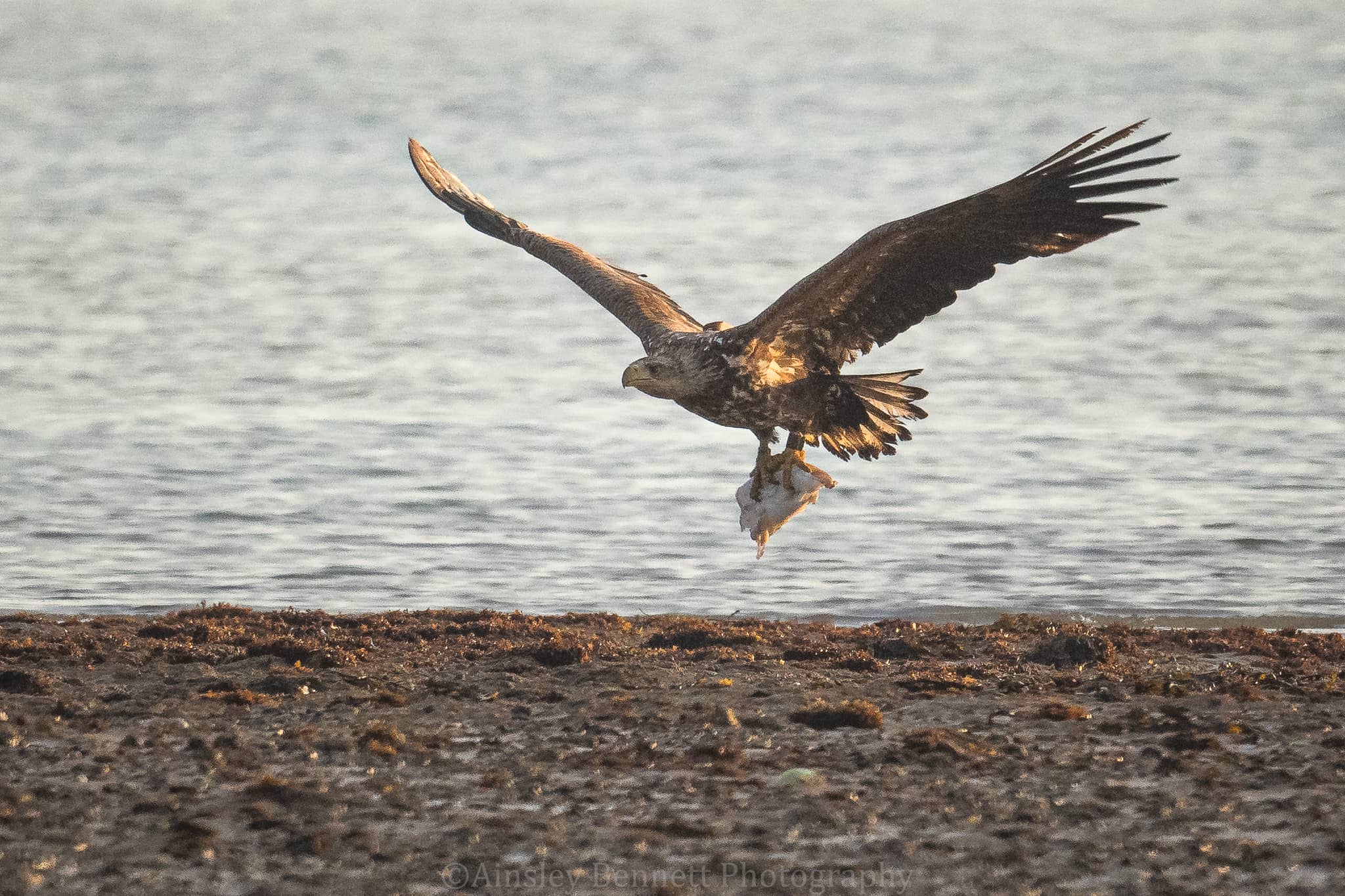A police investigation into the death of a satellite-tracked White-tailed Eagle on the Isle of Wight has found no evidence of unlawful killing.
It comes after Hampshire Constabulary were called shortly after 5pm on Thursday 24th February 2022 to a report of a dead sea eagle on Bowcombe Road on the Isle of Wight.
Support for local investigation
The circumstances surrounding the death were investigated by local Country Watch officers, along with the support of various partners including the Animal and Plant Health Agency, DEFRA, Forestry England and the Roy Dennis Wildlife Foundation.
Officers explored all possible lines of enquiry into the death, including; analysis of satellite tracking data, evidential land searches in and around the site where the bird was found deceased, obtaining accounts from witnesses in the local area at the time, comprehensive veterinary x-rays as well as conducting specialist post mortem examinations.
The bird initially tested positive for Avian Influenza (AI), but subsequent post-mortem examination carried out under strict AI protocols concluded that this was not the cause of death.
Levels of rodenticides not enough to cause death
Standard toxicology testing was not possible due to the AI positive test, but the limited analysis that was undertaken did reveal elevated background levels of two rodenticides, brodifacoum and difenacoum, though not at sufficiently high levels to have caused the death of the bird.
As such the post-mortem concluded that the actual cause of death of the White-tailed Eagle remains uncertain.
During the post mortem, there was no evidence of any lesions on the sea eagle to explain the cause of death.
Ross: No evidence of unlawful killing
Police Sergeant Stuart Ross of Hampshire Constabulary’s Country Watch team, said,
“Hampshire Constabulary has carried out a thorough criminal investigation into the death of the White-tailed Eagle and have found no evidence of unlawful killing from the lines of enquires carried out and evidence gathered by officers.
“As such, we are satisfied that there is no evidence of criminal offences having taken place and that the death of the White-tailed Eagle is being treated as uncertain at this time.
“The criminal aspect of this investigation has now concluded, but we urge all users of rodenticides, particularly brodifacoum, which is known to be highly toxic to wildlife, to follow all guidelines regarding use. Brodifacounm should only be used in and around buildings.”
The reintroduction of White-tailed Eagles on the Isle of Wight is part of a dedicated scheme run, under a Natural England licence, by Forestry England and the Roy Dennis Wildlife Foundation.
News shared by Hampshire and Isle of Wight Constabulary, in their own words. Ed
Image: © Ainsley Bennett





